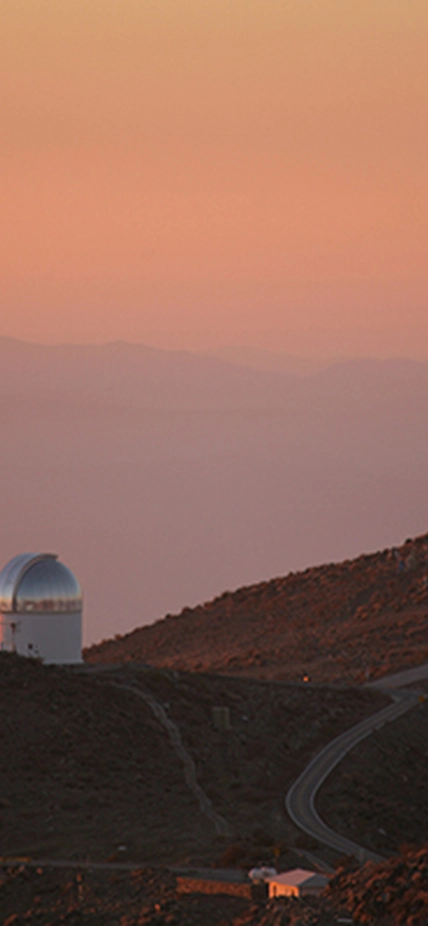Dear Friends,
I hope this letter finds you safe and well.
It has now been two full years since we were first forced to close our campus due to COVID-19. While the pandemic has brought many challenges, we have continued our mission of understanding the universe. Our astronomers have learned to share results, discuss new ideas, and collaborate via Zoom. We were able to successfully pivot both our summer internship program and our public engagement programs to the predominantly remote and virtual world in which we’ve been operating since March 2020. I am very proud of how much we have accomplished in these challenging times.
With the latest COVID-19 wave passing, we are looking forward to returning to more in-person activities. I am particularly excited for the return of an audience for our spring Astronomy Lecture Series at the Huntington Library, Museum, and Botanical Gardens. This year marks the 20th anniversary of the series and to celebrate, we are bringing back the same speaker line-up that graced the stage back in 2002: Paul Butler, Alan Dressler, Wendy Freedman, and me. These talks will give us a chance to reflect on all the amazing things we’ve learned over the past two decades. As in previous years, tickets are required in advance of the talks. We will also be following Covid-19 protocols to ensure the safety of our guests. You can find all the details below. We also know that some of you may not be comfortable attending large events at this time. For this reason, we will continue to livestream the talks and post recordings of each lecture, so you can view them at your convenience from home.
Like many of you, I watched with excitement when the James Webb Space Telescope (JWST) was launched late last year and successfully deployed over the last few months. Not surprisingly, a number of our astronomers have approved programs with JWST in the space telescope’s first round of observations. As described elsewhere in this newsletter, our astronomers will use JWST to address questions over a wide range of topics from nearby exoplanets to distant galaxies. What’s more, Alan Dressler, who was involved in the program’s early development, will also be dedicating his lecture on April 25th to JWST. I hope you’ll join us to learn not only about the science the telescope will do, but also about its origins.
I hope to see many of you in person again in the coming weeks and as always thank you for your support of Carnegie.
Dr. John Mulchaey
Crawford H. Greenewalt Chair and Director of the Carnegie Observatories
